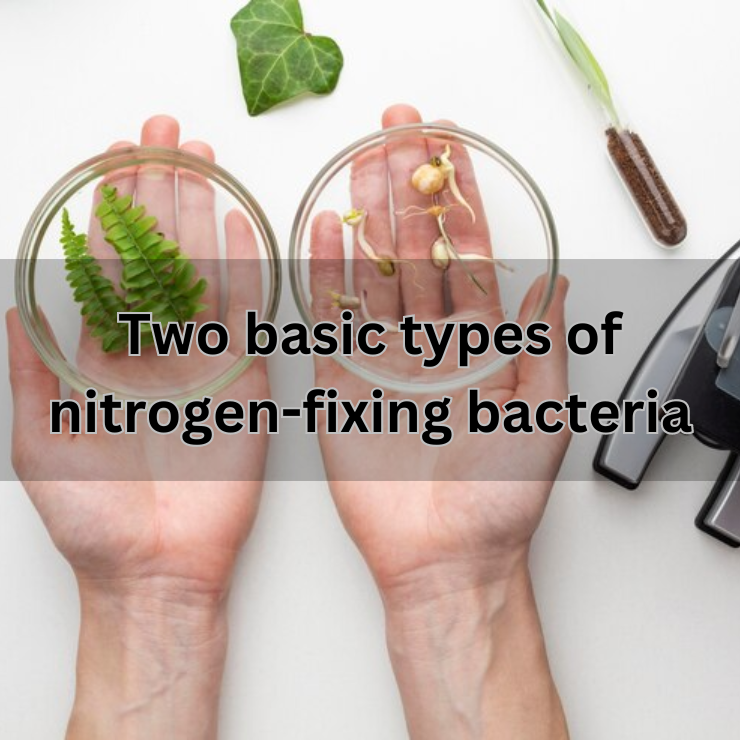What are the two basic types of nitrogen-fixing bacteria?
- Isabella Brown

- Jan 17, 2024
- 2 min read

Nitrogen is a vital nutrient for plant growth, but not all plants can use nitrogen directly from the air. This is where nitrogen fixing bacteria play a crucial role. These microorganisms convert atmospheric nitrogen into a form that plants can absorb and use. There are two basic types of nitrogen-fixing bacteria, each with its unique characteristics, advantages, and disadvantages.
1. Symbiotic Nitrogen-Fixing Bacteria
Symbiotic nitrogen fixing bacteria form a mutualistic relationship with the roots of certain plants, particularly legumes like peas, beans, and clover. The most well-known among these bacteria are the Rhizobia. They infect the roots of host plants, forming nodules where nitrogen fixation occurs.
Advantages
Enhanced Plant Growth: These bacteria provide a significant amount of nitrogen to the plant, promoting better growth and yield.
Soil Health: The process improves soil fertility, benefiting subsequent plants grown in the same soil.
Environmentally Friendly: Reduces the need for chemical nitrogen fertilizers, decreasing environmental pollution.
Disadvantages
Host Specificity: They are specific to certain plant species, limiting their use in non-leguminous crops.
Dependency: Some plants may become overly dependent on these bacteria, reducing their ability to utilize other nitrogen sources.
2. Free-Living Nitrogen-Fixing Bacteria
Free-living nitrogen-fixing bacteria, such as Azotobacter and Clostridium, do not require a host plant to fix nitrogen. They live in the soil and fix nitrogen independently, which is then released into the soil when they die.
Advantages
Broad Application: They can benefit a wide range of plants, not just specific species.
Soil Enrichment: Contributes to the overall nitrogen content of the soil, enhancing its fertility.
Disadvantages
Less Efficient: These bacteria generally fix less nitrogen compared to their symbiotic counterparts.
Variable Performance: Their nitrogen-fixing ability can be influenced by environmental factors like soil pH, temperature, and moisture.
Conclusion
Nitrogen-fixing bacteria, whether symbiotic or free-living, play a vital role in agriculture and ecosystem sustainability. They offer a natural way to enrich soil nitrogen content, promoting plant growth and reducing the reliance on synthetic fertilizers. However, their effectiveness can vary based on the type of bacteria, plant species, and environmental conditions. Understanding these dynamics is crucial for effectively utilizing nitrogen-fixing bacteria in agricultural practices.



Comments